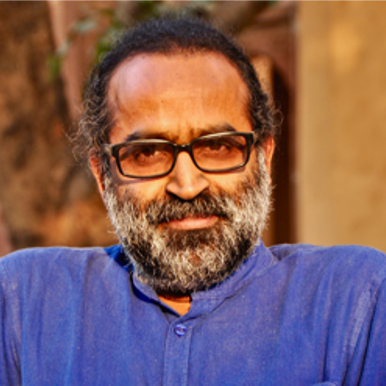The Art of Deep Listening – Steps to Personal Mastery


Santhosh Babu
“Hewas taught by the river. Incessantly, he learned from it. Most of all, he learned from it to listen, to pay close attention with a quiet heart, with a waiting, opened soul, without passion, without a wish, without judgment, without an opinion,” wrote Hermann Hesse, the German novelist, in his book Siddhartha. Yes, when we pay close attention without judgment, with a quite heart and open soul, we learn. A deeper level of listening to self and others is essential for personal mastery.
All of us know that, at the end of the day, organizational transformation does not happen without individuals transforming themselves and evolving into a higher level of awareness. We hear the word mindset change in organizations and also hear a curious question weather mindsets can be changed. organizations need to adapt and transform in an ever changing and dynamic world and this is true for individuals also. The world around us is changing fast and each one of us needs to work on ourselves constantly and bring about personal transformation. This means we have to demonstrate personal mastery and continuously strive to make us the better version of us.
Peter Senge, author of the book Fifth Discipline, said that “personal mastery is the discipline of continually clarifying and deepening our personal vision, of focusing our energies, of developing patience, and of seeing reality objectively.” Personal mastery, in other words, is the continuous learning by the individual to lead his or her life and work with intent, purpose, skill and craft. According to Senge, each of us must be responsible for, and in charge of, our own pursuit of personal mastery. In the organizational context, personal mastery is a conscious effort by individuals for continuous improvement contributing to high performance and intended results.
If you are interested in personal mastery and would like to make you a better version of yourself, feel happy and peaceful about who you are and what you do. Your starting point is to reflect on the way you listen. Listening is not about waiting for your chance to speak. Can you listen from a deep, receptive, and caring place in yourself, to deeper and often subtler levels of meaning and intention in the other person?
Jiddu Krishnamurti, the philoshopher, wrote about deep listening in a beautiful way. “I do not know if you have ever examined how you listen, it doesn’t matter to what, whether to a bird, to the wind in the leaves, to the rushing waters or how you listen in a dialogue with yourself to your conversation in various relationships with your intimate friends your wife or husband. If we try to listen we find it extraordinarily difficult, because we are always projecting our opinions and ideas, our prejudices, our background, our inclinations, our impulses; when they dominate, we hardly listen at all to what is being said. In that state there is no value at all. One listens, and therefore learns, only in a state of attention, a state of silence in which this whole background is in abeyance, is quiet; and then it seems to me, it is possible to communicate.”
And as Krishnamurti said, one of the reasons why we find it difficult to listen deeply is because our pre-conceived notions, ideas and thoughts dominate our minds while we are having a conversation with another human being. In other words, we are always, already and automatically listening with all our mental filters and mental models. Both Werner Erhard who created est, and Landmark who created The Landmark Forum talked about the ‘Already Always’ listening mind in his trainings and how that stops us from fully being present.
Pause for a moment and reflect how the voices inside you stop you from fully and deeply listening. Are you able to read this article with a quite and open mind? Or your own idea about what listening is and opinions about what you are reading now, creating a filter?
Deep Listening is a way of hearing in which we are fully present with what is happening in the moment without trying to control it or judge it. We let go of our inner chatter and our usual assumptions and listen with respect for precisely what is being said, the intent and the space between the words.
WHAT STOPS US FROM BEING FULLY PRESENT AND LISTENING?
Some of us find it difficult to differentiate our needs from others’ needs. We hear something and our mind immediately asks, how does this affect me? What should I say next to express my needs? We sometimes jump into conclusions about what others are saying. If we pay close attention we could realise that when we speak many a time we are “downloading” our pre-conceived notions and pre-formed opinions. Or we get into a debate mode, without understanding the real intentions behind others’ communication. So we can see that a major obstacle to listening is a common tendency to filter and judge others’ talk based on pre-existing assumptions, expectations and intentions.
THE BEAUTY AND BENEFITS OF DEEP LISTENING
Carl Rogers, the American psychotherapist whose work has deeply influenced me, believed that there is a built-in motivation present in every life form to develop its potentials to the fullest extent possible. Rogers believes that all creatures strive to make the very best of their existence. If they fail to do so, it is not for a lack of desire. He spoke about unconditional positive regard for the other person and emphasised the importance of deep listening. “When someone really hears you without passing judgment on you, without trying to take responsibility for you, without trying to mold you, it feels damn good. When I have been listened to and when I have been heard, I am able to re-perceive my world in a new way and to go on. It is astonishing how elements which seem insoluble become soluble when someone listens. How confusions which seem irremediable turn into relatively clear flowing streams when one is heard,” he said about the power of listening.
Imagine having deeply connected meaningful conversations that transform your awareness and deepen your understanding of the other person. Imagine being fully understood and appreciated by other people and imagine being able to create a safe space for meaningful dialogue when you are with someone. Imagine how your meetings will change when the members are able to listen to each other in an empathetic and compassionate way.
HOW CAN YOU DEVELOP DEEP LISTENING SKILLS?
• Pay attention to your way of listening.
• Be aware of your judgments and opinions.
• Be completely attentive in a conversation.
• Be curious like a child.
• Pay attention to what is said and what is unsaid.
• Ask questions and acknowledge the other person.
• Have a positive regard for the other person.
Remember that the opposite of talking isn’t listening. The opposite of talking could be waiting for the turn to speak. Actually, the listener in you creates the speaker in the other person. So listen deeply and compassionately with a quite mind and open heart. The word “listen” contains the same letters as the word “silent”.
Please click here to download the latest OD PUBLICATION.

